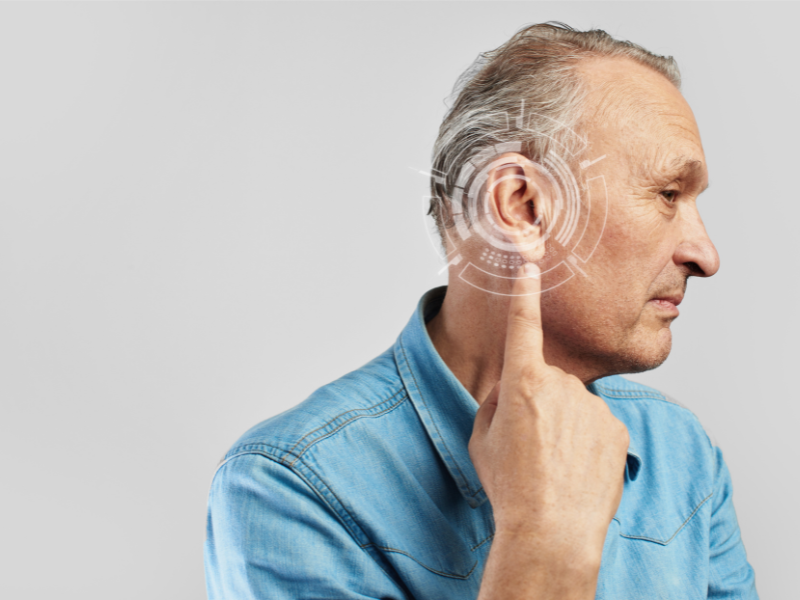Understanding the Different Types of Hearing Aids for Elderly People

Why Hearing Loss is Common in Older Adults
As we age, our bodies naturally slow down—and that includes our ears. Most seniors over 65 experience some degree of hearing loss, often due to gradual wear and tear on the hair cells inside the inner ear.
Impact of Untreated Hearing Loss on Seniors' Lives
Unchecked hearing loss doesn’t just affect conversations. It leads to social isolation, depression, memory issues, and even an increased risk of falls. That's why getting the right hearing aid is crucial—not just for hearing but for living.
🔊 What is a Hearing Aid?
Basic Functionality of a Hearing Aid
At its core, a hearing aid is a small electronic device that amplifies sound. It picks up noise through a microphone, processes it, and delivers it to the ear via a speaker. Sounds simple, right? But tech has come a long way.
How Hearing Aids Help the Elderly
Hearing aids for Elderly People do more than just amplify sound—they reconnect them with the world. From enjoying their favorite music to catching up with the grandkids, hearing aids restore confidence and independence.
🎧 Main Types of Hearing Aids for Elderly People
Behind-the-Ear (BTE) Hearing Aids
These sit behind the ear with a tube that connects to an earpiece inside the canal.
Pros and Cons of BTE for Seniors
Pros:
-
Great for severe hearing loss
-
Easy to handle and adjust
-
Longer battery life
Cons: -
It might feel bulky for some
In-the-Ear (ITE) Hearing Aids
These fill the outer portion of the ear and are custom-molded.
Comfort and Accessibility
They’re easier to insert and remove, which is perfect if dexterity is an issue. Plus, they offer more space for features like volume control.
In-the-Canal (ITC) and Completely-in-the-Canal (CIC) Hearing Aids
These are smaller and more discreet, fitting partially or completely inside the ear canal.
When Discreetness Matters
While these are less noticeable, they may not be ideal for people with limited finger dexterity due to their small size and tiny batteries.
Receiver-in-Canal (RIC) Hearing Aids
RICs look like BTEs but offer better sound clarity with less feedback.
Sound Quality and Feedback Reduction
These are often more comfortable and less prone to that annoying whistling sound. Ideal for those who value sound quality.
⚙️ Key Features to Consider in Hearing Aids for Seniors
Volume Control and Ease of Use
Some seniors prefer manual controls, while others love automatic settings. Always choose what's easiest for the user.
Rechargeable vs. Disposable Batteries
Rechargeable aids eliminate the need for frequent battery changes—a big plus for seniors with arthritis or vision issues.
Bluetooth Connectivity and Smart Features
Modern hearing aids can connect to phones and TVs. Imagine taking a phone call directly through your hearing aid!
Noise Cancellation and Directional Microphones
These features help seniors focus on conversations in noisy environments like restaurants or family gatherings.
🧠 How to Choose the Right Hearing Aid for Old Age
Assessing Hearing Needs and Lifestyle
Does the person love watching TV or going to group events? Their lifestyle can guide the right choice.
Getting a Professional Hearing Test
Never guess. A professional audiologist can determine the exact level of hearing loss and recommend the best options.
Budget and Insurance Options
Hearing aids can be pricey, but options like payment plans, insurance, and government programs can help.
👵 Tips for First-Time Users and Caregivers
Helping Seniors Adapt to Hearing Aids
Start slow—wear them for short periods and gradually increase. Be patient; adjustment takes time.
Regular Maintenance and Cleaning
Daily cleaning prevents wax buildup. Periodic professional checks ensure the device is working properly.
❌ Common Myths About Hearing Aids for Seniors
"They’ll Make Me Look Old"
Ironically, not hearing well is more noticeable than a tiny device. Today’s aids are sleek and even stylish.
"They Don’t Work"
Modern hearing aids are backed by science and technology. If one doesn’t help, it might just be the wrong type—not the wrong idea.
🎯 Conclusion: Empowering Elderly Lives Through Better Hearing
Hearing loss doesn't have to mean losing touch with the world. With the right hearing aid, seniors can reclaim joy, clarity, and connection in everyday life. It’s not just about hearing better—it’s about living better.
- Industry
- Art
- Causes
- Crafts
- Dance
- Drinks
- Film
- Fitness
- Food
- Jogos
- Gardening
- Health
- Início
- Literature
- Music
- Networking
- Outro
- Party
- Religion
- Shopping
- Sports
- Theater
- Wellness
- News


